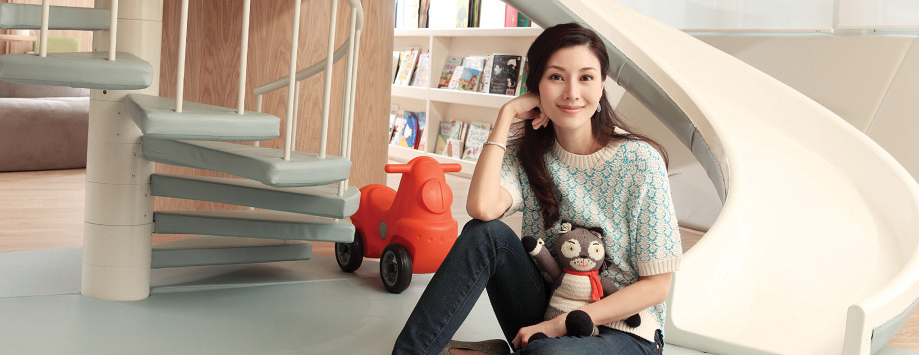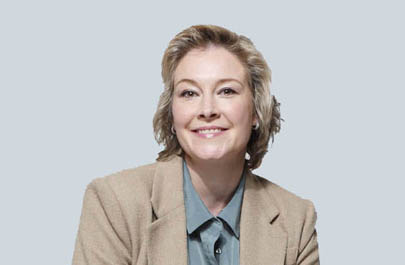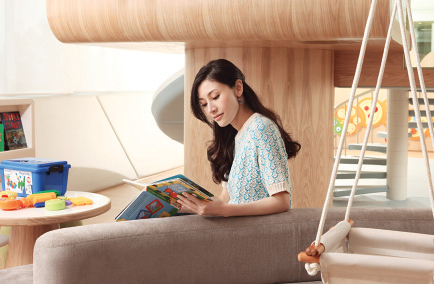-
April 10 , 2013
Did you know?

“At birth, the brain already has 100 billion neurons,
but they are not well connected yet.”
– Scarlett Mattoll, MSc, MBPsS, MAC
Brain Power – Maximising the early years
How do you know if you’re doing everything you can to nurture your child’s mind?
Brain development starts even before birth and it’s important for parents to support their child’s learning during the first five years of life.
Knowing how you can support your child’s development is one of the best first steps in helping him or her develop brain power.At birth, the brain already has 100 billion neurons, but they are not well connected yet. The connections need to be formed through “neural pathways” that act like very long wires. These wires allow for communication between our brains and bodies so we can interpret everything our senses pick up from the outside world.
As our child’s brain develops, there are critical periods for our children to optimally develop vision, auditory, cognitive, sensory, motor and linguistic functions.
As children grow up, they get lots of stimulation from the environment which connects neural pathways; practicing the same things over and over again strengthens the existing neural pathways even more. When you don’t use it, you lose it! Stimulation and care help our brains develop better and keep it running.
At around the age of two, children experience a period of “synaptic exuberance”, where neurons become linked up at a faster rate than any other time of normal human development. This explains why two year-olds often run around repeating actions and insist on doing it themselves. They are happy after completing a new capability with success, and parents should applaud them. Parents who provide emotional support and greater learning opportunities see healthier communication patterns. This leads to well-adjusted primary students and less-stressful teenage years. Who can say no to that?
So – what can you do to maximise the early years?
This seems obvious but touch your child! This first sensory experience develops closeness between you and your child and better links up senses with the brain, and thus allows the development of other senses more quickly.
Talk to your child and be a model for their language development. Emotional development starts at home, so smile at your child every chance you get. Children who don’t get their emotional development from home are less likely to develop functional social skills, which can be much more difficult to acquire later on. Play with your child to help the transition from parallel play to cooperative play in their toddler years.
There is much responsibility that comes with being a parent. Being aware of the areas in which your child will most benefit and supporting them every chance you get is the first best start in the lifelong task of giving your little one real brain power.
Scarlett Mattoli, founder of psychology consultancy Psynamo Limited, offers advisory services on issues surrounding normal development and learning differences of children.
-
-
March 10 , 2013
A Parent Perspective

“I’m a firm believer that you can only bring
happiness to others when you are content yourself”
– Michele Reis, ArtistYour son Jayden just turned two in February. How would you sum up the first two years of motherhood?
It has been a fascinating journey with mixed emotions. At the beginning there were times when I felt a sense of helplessness trying to interpret the needs and wants of a newborn baby. You want to be sure you’re doing the right thing but without the ability to communicate, you just never know. I found those moments of uncertainty stressful.
As with many things in life, experience counts a lot. While sometimes I still feel overwhelmed with responsibility, two years on I’m far more relaxed, enjoying every moment of motherhood particularly now that Jayden talks and listens to me.
Which aspect do you find most challenging at the moment?
Fostering independence. Wanting the best for him but at the same time, just letting him be.
How have you approached balancing work life with family life?
Managing time carefully is the key to keeping both worlds in check. My priority will always be with my family but work remains an important part of my life. I have the privilege to enjoy what I am doing now; it makes me happy and keeps me grounded. I’m a firm believer that you can only bring happiness to others when you are content yourself.
What would your advice to be to other first-time mothers?
- Relax
- Relax
- Believe in your own maternal instincts and don’t succumb to peer pressure.
- The best gift to your child is your love and time.
Are there any ‘cardinal rules’ you apply when it comes to the development and well-being of your child?
Developing a good sense of balance and co-ordination is crucial at his age and so I make sure he’s exposed to a broad range of physical activities. I also like to encourage learning from a real world context wherever possible; to experience things rather than just seeing them on paper. The question of ‘screen time’ invariably comes up quite often, and while I don’t completely ban it altogether, I’ve set a limit of 30 minutes per day for age appropriate shows. Other than that, I try to ensure he maintains a healthy diet.
Where do you draw inspiration and ideas from on child rearing / parenting?
Simplicity Parenting by Kim John Payne was an interesting read. I also look forward to exchanging ideas with SPRING’s panel of child specialists in the near future.
Tell us about the JMJ Foundation that you’ve setup.
The primary purpose of the JMJ Foundation is to assist in the creation of educational establishments for children throughout China. Working together with the Caring For Children Foundation, we have been involved with the development of over 200 schools throughout Yunnan province to date.
I have been truly blessed with Jayden’s arrival into my life and this Foundation is a small way for me to give back to other children in need. I donate a percentage of my earnings to the charity and encourage all friends and family to donate to the Foundation in lieu of gifts to Jayden. My goal is for Jayden to take an active role with the charity himself someday, and to learn the joys of helping and sharing with others that are in a less fortunate position.
To find out more or to make a donation to the JMJ Foundation, please e-mail info@jmj-foundation.com

